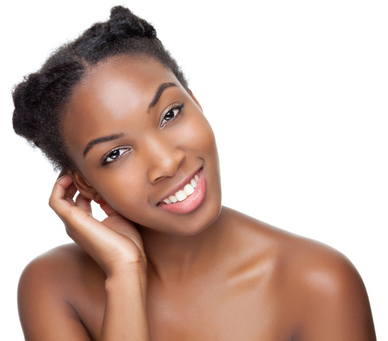With years of experience monitoring various professional hair care markets across the globe, we are completing this picture with a close-up view of the growing market for professional hair care products dedicated to black consumers. By analyzing this compelling market segment, we’ve come to realize that the market differs in many ways from what we’ve been used to observing in our annual Salon Hair Care Global Series report.
As North America celebrates “Black History Month” in February, we believe it is a good opportunity to spread the word about the growing and yet different hair care needs of black consumers. Let’s take a closer look at three facts that make this market so special:
1. Hair is an extremely important part of a black woman’s image – People of African descent are devoted to their hair looking its absolute best; in many countries, these consumers spend more on their hair than other consumer groups. The importance of hair to black consumers dates back to early African civilizations. Hair is a connected part of the black population’s history, highlighted in books, such as “Hair Story: Untangling the Roots of Black Hair in America” written by Ayana Byrd and Lori Tharps, and exhibitions, such as ”HAIR – Heritage. Attitude. Identity. Respect.” in the Museum of Liverpool (United Kingdom).
2. Dedicated hair salons for black consumers – How does the importance of hair translate into consumer needs? The importance of hair is closely linked to who the hair is entrusted to—black consumers in many countries do not go to “regular” hair salons, as they only trust the expertise and know-how of ethnic hairstylists. The number of ethnic hair salons is huge in some markets. For example, in South Africa, there are about 100,000 hair salons dedicated to ethnic hair, although only a small percentage have a license and are officially running their businesses. In the United States alone, there are approximately 23,000 ethnic salons officially registered.
3. Specific products for black consumers – The importance of hair in one’s image, as well as the different needs of black hair, also translate into a competitive landscape distinct from the one observed in our Salon Hair Care Global Series report. The brands that compete in the ethnic hair care market are in the vast majority dedicated to and targeted towards black consumers’ hair. The market is composed of many small and medium-sized players, and the dominant companies and brands differ from one market to another. What they all have in common is their heritage—most brands have been established and are run by ethnic owners and or are often family-run businesses. This includes key players, such as AMKA in Africa or Luster Products and Dudley Beauty in the United States. The product portfolio of these brands differs significantly as black consumers use different types of products due to their hair texture differences. Straightening and smoothing products are still very popular, but the growing trend across different country markets is towards embracing naturally curly hair.
Category Share in Professional Ethnic Hair Care and Salon Hair Care Markets, 2014
Professional Hair Care for Black Consumers Global Salon Hair Care

SOURCE: Professional Hair Care for Black Consumers: Global Market Brief and Salon Hair Care Global Series reports by Kline
The professional hair care market for black consumers has many more faces to unveil. To learn more about this interesting and distinct market, please consult our Professional Hair Care for Black Consumers: Global Market Brief report.
Written by Agnieszka Saintemarie, Project Manager, Consumer Products Practice

